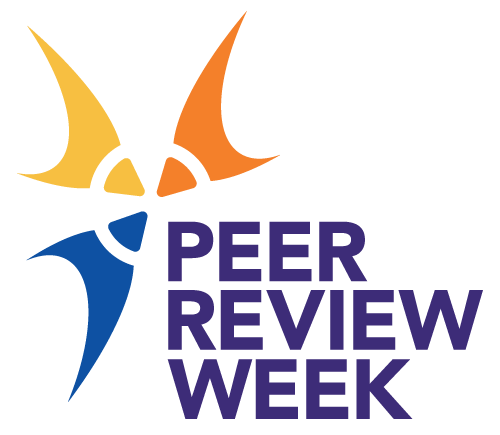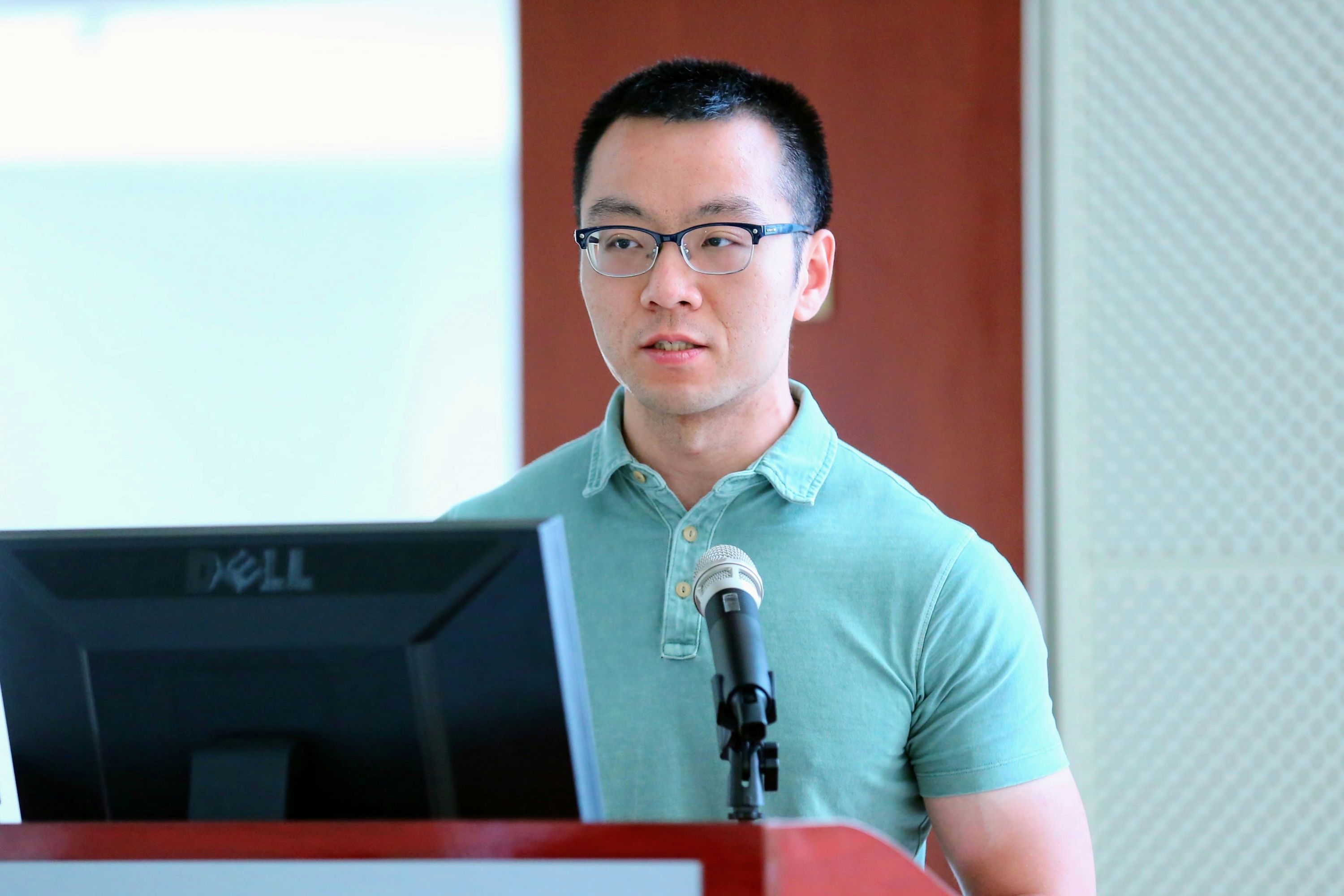Peer Review Week 2024
AMS celebrates Peer Review Week 2024 by highlighting the 2025 Editor’s Award recipients, and sharing their thoughts about peer review.
Celebrating Peer Review Week, 2024!
AMS Editorials on Peer Review
The Importance and Responsibilities of Reviewers (September 2024)
How to Be a More Effective Reviewer
Front Page posts on Peer Review
What Do Non-Scientists Need to Understand about Peer Review?
Who decides how AMS peer review will evolve? Maybe you do!
A Peer Review Conversation
Peer Review: A Foundational Component of Our Science
The Volunteer Power behind Peer Review
Additional Resources
Volunteer as a Reviewer
2025 Editor's Award and Honors Recipients
Past Awards and Honors Recipients

2025 Editor's Awards

Patrick Michael Alexander, Columbia University, BAMS
For a series of outstanding and insightful reviews with exceptional attention to detail
The most important thing for a reviewer is to keep an open mind. Sometimes a manuscript will be difficult to understand or have serious flaws but if I reread it I find that it was the writing or organization that required improvement. Other times a careful examination may reveal a flaw in the manuscript that needs to be addressed even though the manuscript at first appeared to be solid. It is important to examine both the technical aspects and the presentation of a manuscript when conducting a review.
As an author, I've learned that what can at first appear to be a difficult or negative review can actually be quite helpful. For instance I've had the experience where the reviews were quite critical and required extensive revisions, but in the end the revisions helped provide further evidence for the conclusions and made the paper more convincing and impactful.

Stephen Strader, Villanova University, BAMS
For consistently providing thoughtful, critical, and constructive reviews
It takes a lot of time to get research published. Reviewers are volunteers taking time out of their own work and lives to provide constructive feedback for people they may not know. It is a thankless job most of the time. Also, we don’t make up the rules as we go. We have standards and following those standards helps maintain objectivity and push the collective understanding of a given topic.
Your job as a reviewer is to approach the work objectively with the goal of providing constructive feedback that will improve the research. It is your responsibility to be a good steward of the discipline, ensuring that high-quality research is being published. The work you are reviewing is not yours. It is the authors, and they have likely made tough decisions about the methodology, results interpretation, etc. long before they submitted their manuscript for review. It is not the author’s job to conduct the research exactly as the reviewer would. It is the author’s job to explain their reasoning for their choices using existing published research as a stepping stone. Ultimately, a reviewer should view the manuscript from the author’s perspective, as well as their own. This is a delicate but necessary process that all good, objective, and constructive reviewers balance and navigate successfully.

William Cheng, National Center for Atmospheric Research (NCAR), Boulder, CO, JAMC
For providing timely and rigorous evaluations over a wide range of subjects and insightful recommendations that helped improve the final outcomes
If there is one thing that I would like to convey to the public and non-researchers it is that peer review is not about finding faults with the manuscript or being mean to the authors. It is about providing constructive criticism so that the manuscript can be improved.
For a reviewer, it is important to maintain objectivity and impartiality. The manuscript should be judged on its scientific merit and content, methodology and quality of research. Personal bias has no role in the review process. Even though the feedback may be tough and requires a lot of time for revisions, you want to convey to the authors that there are objective reasons behind the comments.

Young-Ha Kim, Seoul National University, JAS
For providing timely, thoughtful, and thorough reviews
Peer review is an opportunity for authors and reviewers to gain a fresh perspective by seeing others' views.
A paper should contribute to the current understanding of the topic. This could be a new discovery, a support or challenge of existing knowledge, or insights that can stimulate discussion in the community. As a reviewer, these are the aspects I focus on. However, it's important to remember that reviewers are only the first judges of the paper---ultimately, readers will also assess it (and the reviewers' judgment).

Gan Zhang, University of Illinois at Urbana-Champaign, JCLI
For a large number of rapid and thoughtful reviews
Doing peer reviews has been a valuable learning experience. Some motivated me to engage with new subjects and techniques. Others involved a collaboration of multiple reviewers with diverse expertise and perspectives. Reading the comments by these colleagues was thought-provoking. Going through the process certainly helped with my writing and communication.
The most important thing is being purposefully constructive. When drafting comments, I usually remind myself that my comments should serve the journal, the scientific enterprise, and the authors. I find it straightforward to focus on the first two, but the last is hard to deliver without some purposeful thinking. The outcome can too easily be comments that are excessively harsh or too generic to be helpful for authors. Thoughtful reviews can make a difference, especially for an early-career researcher. For example, reviewers offered specific suggestions that helped me improve my writing and research. By correcting my rookie mistakes early, those reviewers also spared the reviewers of my later studies some headaches. This is the power of being purposefully constructive.

Ingo Richter, University of Oklahoma, JCLI
For insightful and constructive reviews on rapid timelines
Peer review may be imperfect, but it is still essential in improving the quality of published papers.
I’ve learned a lot of science from doing reviews. Often you have to read up on concepts that you don’t know well enough. Or you try to reproduce some results and, in the process, find something interesting.
I still remember the advice of my postdoctoral adviser: “Peer review is a chance for you to improve your manuscript. It is not about arguing with the reviewer.” I still find this to be very good advice. I have seen cases where authors fill several pages with elaborate arguments about why they didn’t change their manuscript in response to my comments. If they spend so much energy on this, it is a good indication that at least a bit of additional discussion would have been warranted in the manuscript. Things that are crystal-clear to the author may not be so to the reviewer.

Nathan Lenssen, Colorado School of Mines, JCLI
For a large number of high-quality and thorough reviews
Advice I was given at some point is that most manuscripts will get accepted somewhere. Thus, it is your job as a reviewer to help the authors get the manuscript accepted at the submitted journal if at all possible. This attitude has helped me feel aligned with the authors, rather than a gatekeeper.
Through reviews of my own manuscripts, I’ve become a much better writer. In particular, I’ve learned that longer is often worse and to try to make my arguments as clear and succinct as possible.

Noah Samuel Brauer, NOAA/NWS Weather Prediction Center, JHM
For providing high-quality, objective, and timely reviews
The most important thing to keep in mind when reviewing is to provide unbiased, objective, and constructive feedback to the authors. It is important to ensure that the methods/science is sound, authors can use constructive comments and suggestions to improve the quality and robustness of their work.
By reviewing, I am able to stay up to date with the latest advancements in the field of hydrometeorology. I also gain insight into different perspectives and statistical methods that can be used to analyze and quantify data. Reading reviews of my own papers allows me to view my work from different perspectives. Sometimes reviewers address concerns that I may have overlooked, which undoubtedly improves the quality of my papers.

Christopher Pitt Wolfe, Stony Brook University, JPO
For many thoughtful, helpful, and concise reviews, including of some particularly difficult manuscripts
Everything should make sense in detail. If something doesn’t make sense, it could be wrong or simply not explained well (usually the latter). There should be enough information that a reader reasonably familiar with the field could reproduce the results (or at least the analysis) given sufficient time and resources.
You learn a lot about people by their reaction to criticism, even constructive criticism. While many authors simply want to produce a good paper and appreciate the reviewer’s effort, others become defensive and combative. It gives you insights into a researcher's approach and style that would be hard to get from reading their published work.
As an author, I found It’s often harder to explain what you’ve done than to do it in the first place. It’s easy to develop your own vocabulary for a problem that’s opaque to outside readers. A good reviewer will point out where my arguments are unclear and sometimes even help me clarify them. In the process, this often helps clarify my own thinking on the problem.

Varvara Zemskova, University of Waterloo, Canada, JPO
For providing insightful reviews on a wide variety of topics ranging from global ocean circulation to interactions of internal waves with topography
I have learned to pay attention to details when reviewing, as even the smallest inconsistencies in notation and wording are confusing to readers, especially early stage scientists or non-experts. When reading an already published paper, the tendency is to “read between the lines” or gloss over such inconsistencies. However, being involved in the peer review process helps address them prior to publication and also potentially avoid them in my own work.
Whenever I review a manuscript, I try to make sure that if an early stage graduate student were to read it, they would be able to understand the background and gaps in the literature and follow the methodology. When I approach peer review through this lens, it helps identify areas that may be unclear to readers, who are not experts in the specific subtopic, and overall improve the flow of the narrative.
Reviewing has made me reflect on the logic in my writing more rigorously, especially to make sure that each statement follows from previous ones. Now every time I write a statement, I try to ensure that the “why” question is answered to guide the reader through my scientific reasoning.

Eric Firing, University of Hawaii at Manoa, JTECH
For thorough, excellent, and constructive reviews
Peer review is not infallible, especially at the level of each individual paper, but it is an important mechanism for steering science in the long run towards better descriptions of how the world works.
The purpose of publication is to advance the field. There must be a potential audience who will benefit from reading a paper--who will gain knowledge that more than compensates for the time invested in the reading. My advice to the authors: Think about how your writing can be of greatest net benefit to future readers, whether they be few or many.

Lili Lei, Nanjing University, China, MWR
For providing timely, thoughtful reviews across a variety of challenging topics
We should give a review that is as valuable and constructive as the one that we would expect to receive as authors.
As a reviewer, I aim to be respectful, critical, and professional. By being respectful, I learn something from nearly every manuscript I review. Meanwhile, I critically evaluate each logical step by analyzing the entire manuscript. Through a thoughtful and rational process, a comprehensive and detailed review can be formed.
The valuable reviews I receive as an author not only help me to improve the manuscript, but also inspire my future work.

Yunji Zhang, The Pennsylvania State University, MWR
For timely, thorough, and insightful reviews and support in making difficult editorial decisions
From both the perspective of a reviewer and an author, the review process often provides new angles of how your studies are comprehended by people whose expertise is different from yours. I find that both annoying (of course!) and enlightening.
As a reviewer, you may not know everything that the manuscript presents: After all, if a study is genuinely new, it is at the forefront of our knowledge. Nonetheless, embrace and enjoy it as much as possible, although sometimes it may not be easy with the authors' writing styles!

Jeffrey Duda, Cooperative Institute for Research in Environmental Science, Earth System Research Lab; Boulder, CO, WAF/MWR
For providing extremely thorough, constructive, and timely reviews of numerous manuscripts
Manuscript authors come from a variety of backgrounds, past experiences, cultures, and idiosyncrasies. These often show in the writing style as well as the messages the authors prefer to focus on. There is more than one way to adequately state an idea or defend an argument. I have had to adjust my cultural thinking to better understand the arguments being made by authors who do not share my background or perspective and thus who still provide sound reasoning even if they use words and phrases that I would not choose to use.
Peer review may sound like a dry, boring, non-stimulating activity. But in reality, peer review requires creative and critical thinking, and often I learn new facts about topics related to atmospheric science and/or am exposed to new ways of thinking about subjects I already know a lot about. Performing peer review has expanded my worldview and helped me develop the skill of examining issues from perspectives not native to my own history.

Veronica Makuvaro, Midlands State University, Zimbabwe, WCAS
For providing a series of thoughtful, comprehensive, and constructive reviews for an unusual paper
There is a need to understand the message the authors are conveying and value their perspective. There is always room to learn from papers written by others especially as new research approaches are always evolving.
There are always things to learn from reviewer comments and corrections. However, there are reviewers who use language which does not portray that they are also authors themselves. The language used by reviewers should not discourage or demoralize authors.